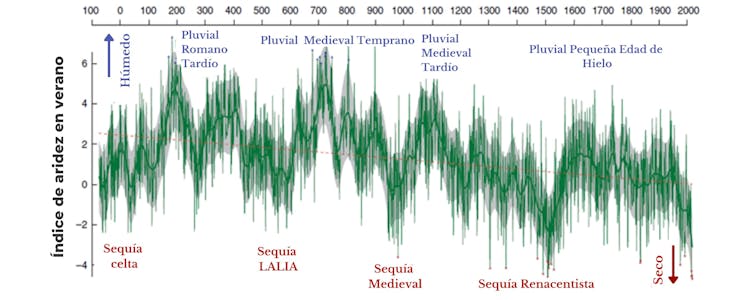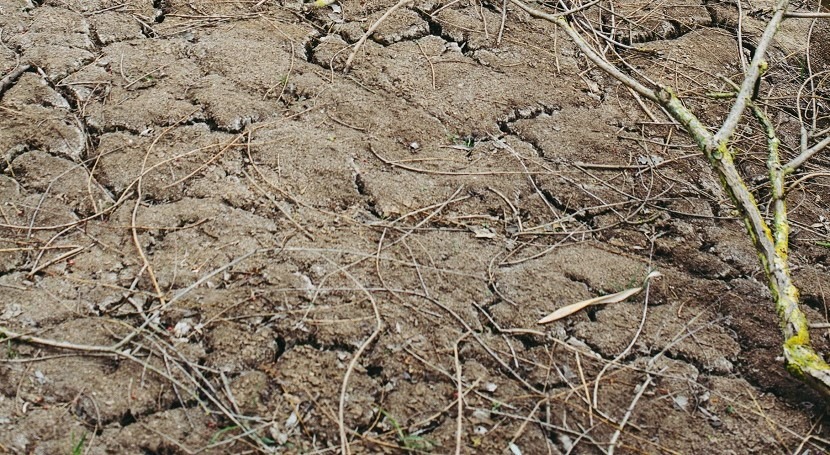Records show that Europe has never been as dry as in recent decades. Drought has direct consequences on our lives, not least because it threatens basic foodstuffs such as milk. Remember that a cow needs more than 100 litres of water per day to produce milk, and that recently farms have been closing down because they are unable to compete with macro farms on price.
Countries such as Spain have been forced to import milk from other nations in Europe. But as Europe is also suffering from severe droughts, it could end up importing from the US and China. Something similar was seen in the southern hemisphere summer in Argentina and Brazil.
Beer provides another striking illustration of the impact of drought. Recently, Mexican President Andrés Manuel López Obrador considered halting beer production in the northern states, which are suffering from severe drought. Monterrey is the second most populous city in the country and home to powerful breweries. Beer production requires large amounts of water and in northern Mexico is compromising domestic water supplies. Studies indicate that climate change is threatening the brewing industry in several parts of the world.
Driest years, despite deluges
Contrasting rainfall patterns mean some years bring floods (eg. in 2021) and other years, droughts (2022), and sometimes this happens in virtually the same places. Despite the apparent contradiction, and climate change scepticism this can fuel, these opposing effects are triggered by the same process: the warming of the atmosphere by the emission of greenhouse gases. This warming increases climate variability and makes it more rare for rain to fall gently and continuously.
Extreme rainfall has become more frequent and intense in parts of Europe over the last century and there is evidence that human-induced climate change is responsible for this. And the devastating effect of the July 2021 rains and floods in Europe was amplified by human alteration of river basins, their artificialisation and the loss of natural vegetation and soil. One year on, many of these flooded areas of Europe have suffered the most intense drought since the Middle Ages.
Dutch foundations rotting away
So much so that Dutch houses built on wooden stilts are rotting after severe droughts. Amsterdam’s famous Rijksmuseum has sunk more than 15 centimetres. Like many buildings built before 1970 in this low country, the museum rests on some 8,000 wooden poles as its foundation. Because dry summers lower the groundwater level, the posts are exposed and fungi, which need oxygen to survive, rot the foundations. In this case it is the shortage of water, not the excess, that causes the disaster.
At a time when Europe is suffering the worst drought in 500 years, this problem may not be limited to the Netherlands, as wooden foundations are also used in parts of Sweden, Germany and, to a large extent, in the Italian city of Venice. The Dutch will be forced to to reconsider their water management strategy. Without action, many houses could collapse within a decade.
The fact that no two days, no two months, no two years are climatically the same can make us lose sight of what is happening. Despite the great variability of precipitation in the new climate, it is possible to find certain patterns thanks to long-term statistics and multidisciplinary research.
A recent study by Cambridge University researcher Ulf Büntgen and colleagues links climate series extracted from European tree rings, combining growth data and isotopic data from living and dead trees. This allows us to understand the large climatic fluctuations over time and to conclude that, despite the droughts of the various historical periods, Europe is now experiencing droughts that are without precedent in the last 2,110 years.

An increasingly intense Azores anticyclone
But what is behind the growing drought in Europe? It is the Azores anticyclone, which, together with the Icelandic low pressure area, determines the wind and rain patterns in the North Atlantic.
The Azores anticyclone strongly influences the weather over much of Europe, especially the winter rainfall in the western half of the continent. Woods Hole Oceanographic Institution researchers have found that since the industrial era the extent of this anticyclone has been increasing in line with human-induced climate change.
High pressures are significantly more common in the industrial era (since 1850) than in pre-industrial times, resulting in abnormally dry conditions in the western Mediterranean, including the Iberian Peninsula. Simulations of the last millennium indicate that the expansion of the Azores anticyclone arises after 1850 and strengthens in the 20th century, which is consistent with anthropogenic warming.
Speaking out
The connection between extreme weather events such as droughts, heat waves or freak storms and climate change is scientifically clear. It can be difficult to get that message across. As researchers Zuhad Hai and Rebecca L. Perlman discuss, many politicians find it difficult to make such connections in public for fear of voter backlash.
But as researchers, we must work for an informed citizenry and be clear about what the science tells us on this critical climatic matter.
![]()
Fernando Valladares, Profesor de Investigación en el Departamento de Biogeografía y Cambio Global, Museo Nacional de Ciencias Naturales (MNCN-CSIC)
This article is republished from The Conversation under a Creative Commons license. Read the original article.



